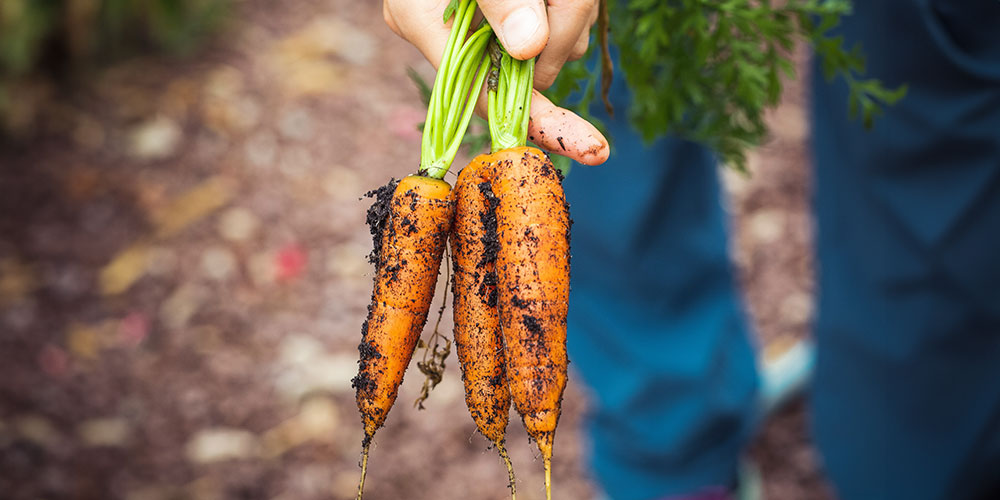
02 Mar March’s Action: Plant a Carrot, Save Our Planet!
In a world grappling with climate change and environmental degradation, every action counts. From reducing our carbon footprint to minimizing waste, there are countless ways individuals can contribute to a healthier planet.
One often overlooked yet impactful solution lies right in our own backyards: growing vegetables and fruit. This simple act provides fresh, nutritious produce for you and your family while also benefiting the environment on a global scale.
Why Gardening?
1. Carbon Footprint Reduction
Every carrot, tomato, or apple you grow in your garden represents a tiny victory against carbon emissions. When you opt to grow your own produce, you eliminate the need for long-distance transportation typically associated with store-bought fruits and vegetables. According to data from the Food and Agriculture Organization (FAO), the average distance food travels from farm to plate is approximately 1,500 miles. Reduce this distance to mere steps from your garden to your kitchen, and you significantly slash the carbon emissions generated by transportation.
2. Water Conservation
Commercial agriculture is notorious for its heavy water consumption, often depleting local water sources and contributing to water scarcity. However, small-scale home gardening allows for more efficient water usage. By implementing techniques such as drip irrigation and mulching, home gardeners can minimize water waste and ensure that every drop counts.
3. Biodiversity Preservation
Monocropping, the practice of growing a single crop over a large area, can lead to soil degradation, pest outbreaks, and loss of biodiversity. In contrast, home gardens offer the opportunity to cultivate a diverse range of fruits, vegetables, and herbs in a single space. This promotes soil health, reduces the need for chemical pesticides, and creates a welcoming habitat for beneficial insects and pollinators. The United Nations’ Food and Agriculture Organization reports that home gardens contribute to preserving genetic diversity and promoting resilient ecosystems.
4. Waste Reduction
The journey from farm to plate is riddled with opportunities for food waste to occur, from spoilage during transportation to unsold produce discarded by retailers. When you grow your own fruits and vegetables, you can harvest only what you need, minimizing the likelihood of food waste. Any excess can be preserved through canning, freezing, or sharing with friends and neighbors, further reducing the environmental impact of food consumption.
Take Action -Getting Started
March is the perfect time to create a plan for growing fruits and vegetables this year.
- If you are not already a gardener, start small. All kinds of salad greens grow nicely in Maine and can be planted week after week from spring into fall.
- Seeds can be started indoors during mid-late March. Vegetable seeds such as carrots, green onions, lettuce, peas, radishes and spinach can be sown outdoors as soon as the soil is workable in April. The USDA plant hardiness zone map is a great tool to help you make your planting decisions.
- Local Farmers Markets will have “starts” in May of already sprouted seeds that work to simplify your gardening efforts to get herbs and vegetables into the ground. Look for organic plants whenever possible.
- Learn about natural means to manage pests and avoid pesticides while still promoting growth in your garden. Whenever possible, look for control products that are organic.
- As the season winds forward, add new plants to meet the warm summer and later early fall weather. Combine the garden refuse from your periodic harvests with other kitchen scraps and start a home compost pile to set up prime soil amendments for next year’s planting.
Take Action Today! Incorporate gardening into your lifestyle and make a positive impact on the environment. Whether you have acres of land or a small balcony, there are options for everyone to participate in growing their own food. Embrace sustainable gardening practices and cultivate a deeper connection with the food we eat. Together we can work towards a greener, more resilient future for generations to come.
Helpful links for planting in Maine:
Independent Garden Center of Maine



